From energy consumption to air traffic, to gas demand, to the internet service and on the phone, the data show the severity of unprecedented blackout.
Spain and Portugal faced the largest blackout of their stories on Monday (28/4), with an important interruption of their electricity.
Millions of people were out of light, trains and subway stopped working, the traffic lights were deactivated, the internet and telephone services were interrupted and various daily activities have been paralyzed.
The authorities still work to clarify the causes of the blackout and completely restore energy. But the data collected in real time give an idea of the scope of the crisis in different areas.
From energy consumption to air traffic, based on the demand for gas, Internet and telephony, some indicators show the severity of the situation.

Blackout numbers
At 12:30 in Spain and at 11:30 in Portugal (7:30 GMT) on Monday, the electrical network of both countries suffered a widespread collapse.
The Red Electric Company of España (Ree), which manages the Spanish electricity network, recorded a “National Zero” – a name given to a widespread blackout – in the system, a situation that had never occurred before, according to experts and energy authorities.
The consumption of energy in Spain went from 25,184 to 12,425 megawatt (MW) in a few minutes.
The areas of Spain outside the continent, such as the Balear and Canary Islands, were not affected by the blackout.
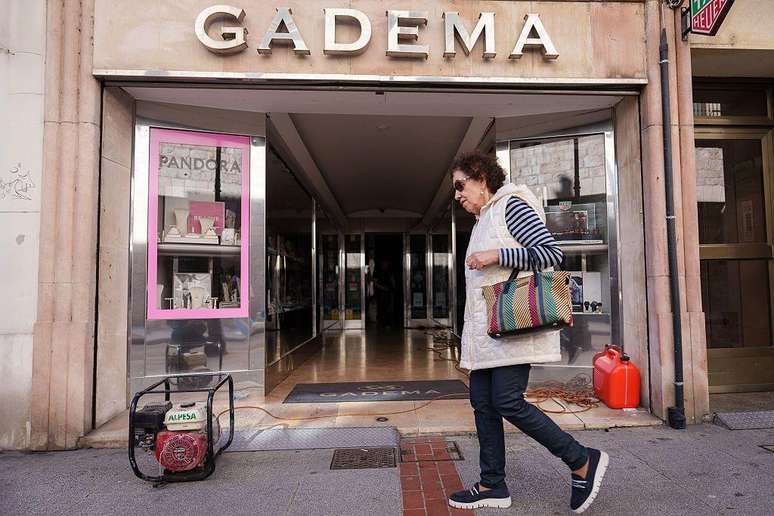
Ree’s real data show that the National Electricity Service has slowly recovered throughout the afternoon and evening.
Electric red initially estimated that the complete restoration of the service could take between six and ten hours, although in some areas the restoration was faster thanks to the support of operators such as the French RTE network, which provided 700 megawatts at Spain.
Portugal, whose electricity grid imports 33% of its consumption of Spain, saw its demand down from 8.16 Gigawatt (GW) to only 0.6 GW, i.e. a 93% cut in its consumption, according to Ren (National Energy Networks).
Southern France has also undergone short interruptions, but the service has been quickly restored.
The blackout had an immediate effect on basic services, from access to the Internet to gas consumption.
In Madrid, data traffic fell more than half compared to normal, from 588 to 252 Gbit/s, according to the Deutscher Commercial Internet Exchange (De-Cix) data released by the newspaper El País.
In telephony, the complaints recorded in the main operators (Movistar, Orange, Vodafone, Jazztel) shot after the current interruption, according to the Downdetector specialized website.
The companies have recorded interruptions in fixed and mobile internet services, although some critical infrastructures such as data centers have been able to continue working thanks to the backup systems.
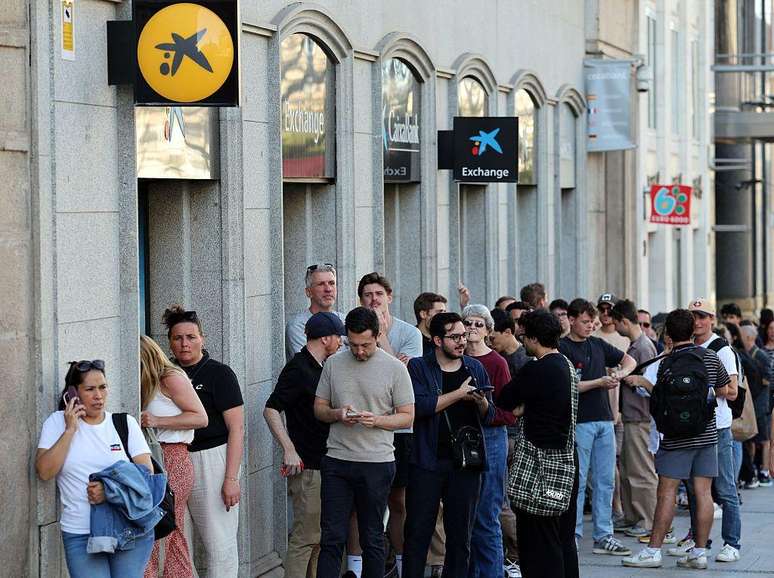
The searches of “Blackout” has increased ten times in five minutes, according to Google Trends, reaching the peak shortly after the blackout, becoming the most searched word of the day, with over 5 million polls.
The demand for natural gas in Spain has also undergone a strong 27 GWH/hour drop in just 8 GWh/hour, coinciding with the collapse of the electrical system, according to ENAGás data.
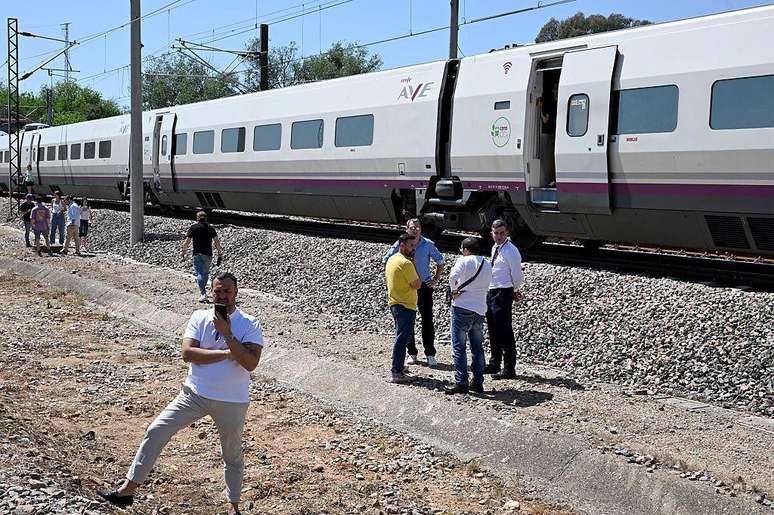
Transport
The Blackout caused a collapse of rail transport throughout Spain.
The operator of the Renfe railway system has suspended the operation of long -range trains, passengers and at high speed.
About 35,000 passengers were arrested on more than one hundred trains and had to be served for emergency services.
The networks of the Madrid and Barcelona metro have also suspended their operations. The authorities asked people to avoid road trips due to the lack of light on traffic lights.
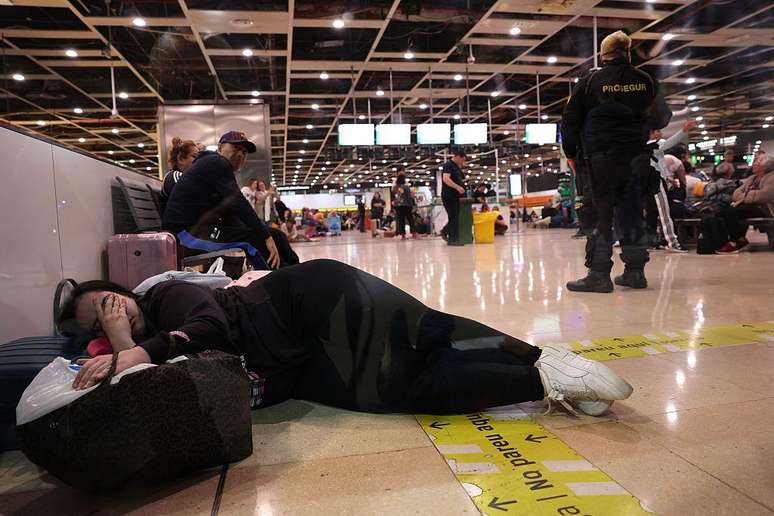
Traffic information systems were interrupted as they were no longer updated in real time.
Cancellations of air traffic have also occurred, albeit less.
In Portugal, 96 flights were deleted, with Lisbon airport, the most affected, responsible for 29.63% of the cancellations of the matches.
In Spain, only 45 flights have been deleted, with minor impacts on the airports of Barcelona (2.98%) and Madrid (2.56%), according to Aen Data.
Although the specific reasons for the cancellations have not been specified, the airports operated with certain restrictions due to current interruption.
Premie Spagnolo Pedro Sánchez made two statements to ask for calm, recommend a minimum use of the internet and cell phones and reduction of travel.
He said that the causes of the blackouts are still studied without discarding any hypothesis.
In Portugal, the company administrator of the National Energy Networks electrical system (Ren) suggested that the interruption was caused by “an unusual atmospheric phenomenon” related to “extreme temperature variations” which caused “atmospheric vibrations induced” in very high voltage lines (400 kV).
Monday’s blackout is described by experts and authorities as unprecedented due to its scale and a simultaneous impact on all vital sectors: energy, transport, telecommunications and basic services.
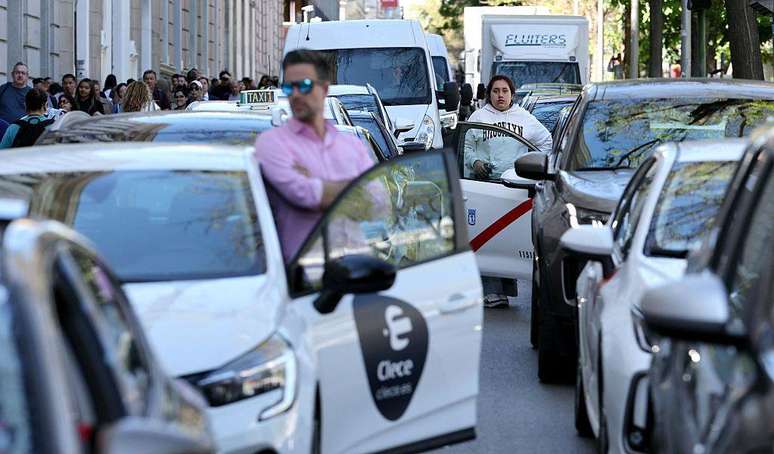
Source: Terra
Rose James is a Gossipify movie and series reviewer known for her in-depth analysis and unique perspective on the latest releases. With a background in film studies, she provides engaging and informative reviews, and keeps readers up to date with industry trends and emerging talents.

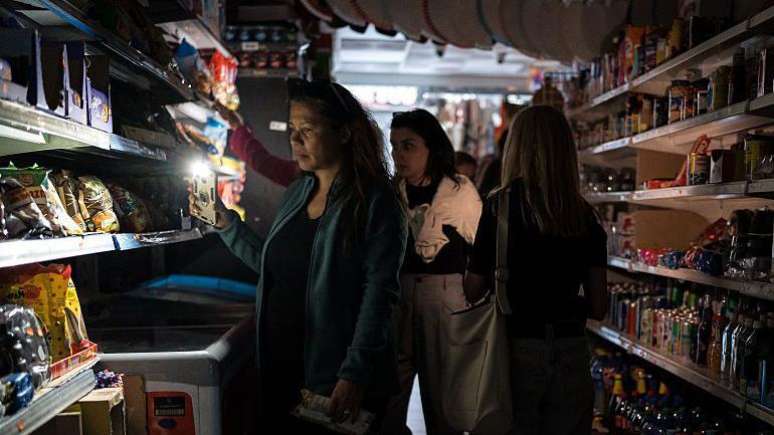
![Tomorrow belongs to us: What are you waiting for on Tuesday, April 29, Tuesday, 1932 in the episode of 1932 [SPOILERS] Tomorrow belongs to us: What are you waiting for on Tuesday, April 29, Tuesday, 1932 in the episode of 1932 [SPOILERS]](https://fr.web.img6.acsta.net/img/83/47/83478eb593f2e8d42fddc75df5af13e4.jpg)





